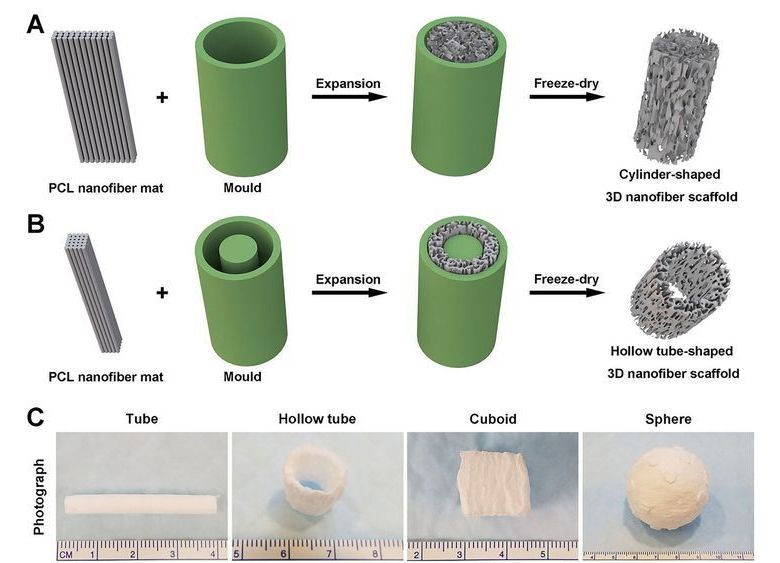In the movie “Transformers,” cars morph into robots, jets or a variety of machinery. A similar concept inspired a group of researchers to combine gas foaming, which is a blend of chemicals that induces gas bubbling, and 3D molding technologies to quickly transform electrospun membranes into complex 3D shapes for biomedical applications.
In Applied Physics Reviews, the group reports on its new approach that demonstrates significant improvements in speed and quality compared with other methods. The work is also the first successful demonstration of formation of 3D neural tissue constructs with an ordered structure through differentiation of human neural progenitor/stem cells on these transformed 3D nanofiber scaffolds.
“Electrospinning is a technology to produce nanofiber membranes,” said co-author Jingwei Xie, at the University of Nebraska Medical Center. “The physics principle behind it involves applying an electrical force to overcome the surface tension of a solution to elongate a solution jet into continuous and ultrafine fibers after solvent evaporation.”
